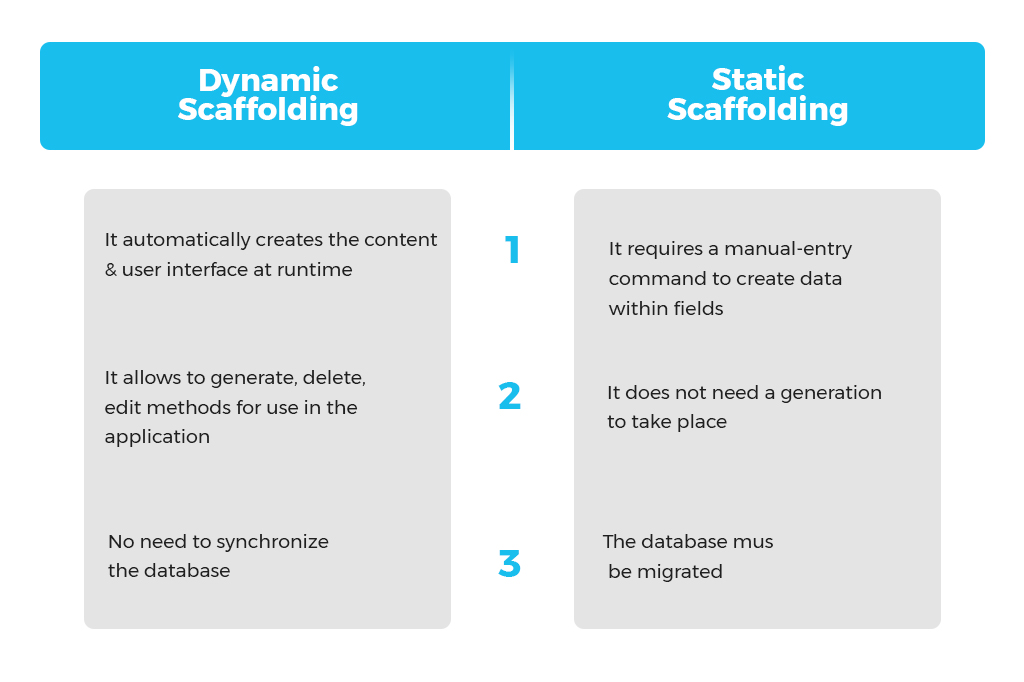If you are wondering how to hire a Ruby on Rails developer, you are in the right place. I have been working in the remote recruitment industry for over eight years. During my career, I have met diverse Ruby on Rails developers. More importantly, I had the opportunity to talk with many international clients, listen to their needs, and picture the most suitable candidate for their project.
Working in a remote recruitment agency, my clients have individual needs and different teams. Each company has its culture that impacts the workflow, especially in distributed teams. Daily, your new hire will remotely collaborate with your team members, report to you, and talk to clients. From my experience, an efficient recruitment strategy must find the right personality, not only the right candidate. You want someone who integrates with your workflow to add value with both technical and human skills.
How to Hire A Ruby on Rails Developer?
Once you list the skill set you need and level of expertise, it’s time to start the hiring process. Here are 6 steps you should always follow to find the RoR developer for you.
1. Define Your Ideal Candidate
Defining your ideal candidate is the first step of the hiring process. Once you have isolated the exact goal you expect from the role, you can imagine the profile for your company. When you need a leading role to develop a new project, you want a motivated candidate who can lead other team members. If you have an existing dev team, you need to consider other people’s personalities and time zones. For example, if you are replacing a developer who was too lazy or too critical in pointing out mistakes, you want to look for someone with initiative and open to feedback. Imagine the type of candidate that can boost your team qualities besides accomplishing tasks.
2. Write a Precise Job Description
As we said, writing the job description is a crucial step of the hiring process. The nature of the framework has different applications, and some projects require specific expertise or years of experience. Here, you must add three things:
- What your project requires: as we mentioned earlier, there are four primary uses for the RoR framework. Developing a web application is different from data migration. Although the skill set is similar, the goal of these skills is different.
- Which contract do you need: Based on the goal of your project, the type of contract you offer is different. For example, if you want a temporary collaboration, you can focus more on specific tech skills. For long-term cooperation, personality and background are crucial for a productive partnership.
- Your company culture and workflow: Explain what your company is about and what your mission is. You want to attract someone passionate about your goals, not only in the job position.
The goal is to give a clear picture of the role and a daily working day. You want to attract candidates interested in what you are offering, not in the job.
3. Ask for Samples of Previous Work and References
In the job application, specify you want samples of previous work and references. Ruby framework has four main applications, and you must make sure you are hiring the candidate with the right background.
Samples of previous work are the best way to check quality in deliveries to test technical skills. In addition, a Ruby developer works on designing, so you want someone who matches the style of your business. For what concerns soft skills, the resume alone isn’t enough. Ask mandatory for references from past employers and check them. As we mentioned, for this type of role, technical and soft skills are equally important.
4. Check Their Activities In The Community
Like Python, Ruby on Rails developers can rely on a vast and dynamic community. Online platforms like rubyonrails.com or Ruby Community are full of developers sharing their knowledge to expand existing libraries. More importantly, they contribute to open source projects, help new developers learn Ruby, provide leadership, and organize meetups.
These communities don’t have benefits only for developers but also for you. You can check on local meetups near the city you are targeting to hire and ask for information about other participants. These communities can support your reference evaluation, testing the professional activities of your developer.
5. Select The Right Platform Evaluating Your Budget
Remember what we said initially. When you hire a Ruby developer, you need to specify the type of contract you want. For your HR, hiring a freelancer, an intern, or a full-time senior position makes a huge difference – and it costs you a different amount of money. In addition, the type of contract guides you in choosing the platform to post your ad.
Platforms like Toptal or Upwork are a good solution if you need fast hiring on a running project. But if you are a startup, this strategy isn’t that functional. Besides the platform’s costs, you will deal with freelancers working on different projects or facing cultural crashes. For long-term collaboration, startup, and small business, investing in recruitment or headhunting agencies ensure a higher quality during the process and a more selected network of candidates.
Here are some of the most popular job platforms to hire remote workers:
- Gun.io
- Turing
- FlexJobs
- WorkingNomads
- WeWorkRemotely
- Outsourcely
- Remote.co
- Remotive
- Virtual Vocations
So, make your decision wisely not to waste your company budget!
6. Interview Stages And Follow Up Candidates
Usually, the interview process takes place in different stages. First, the interview has the scope of gaining a general overview of the candidate’s personality and background. Then, the second interview targets technical skills with tests and specific references to the process. Finally, the last stage focuses on the expectation of the hiring manager for the role.
You can check references of previous work and references during this time, ensuring you are spending your time with suitable candidates. Multiple interviews are helpful to get a complete overview of the person you are talking with. Especially in a remote setting, you need to check the candidates’ confidence in working remotely and having video calls. You need to get a full picture of how they approach performing tasks and interpersonal relationships with colleagues.
It’s a longer process, but you will have more elements to compare the selected candidate’s pool. Don’t forget to make regular follow-ups with promising candidates, ensuring they won’t look for another job waiting for your decision.
What To Look For In An RoR Developer?
You need to prioritize soft skills as much as you prioritize hard skills. Especially when hiring remotely, you want someone who speaks fluent English and can communicate your products to clients and investors, illustrating the different stages of the process and achievements. In addition, you want someone with strong interpersonal and communication skills to work daily with the rest of your team.
Ror Developer Roles and Responsibilities
- Designing, building, and maintaining clean, reusable, and reliable Ruby code.
- Integrating data storage solutions such as databases, key-value stores, blob stores, etc.
- Using server-side logic to integrate user-facing elements from front-end development.
- Identifying bottlenecks and bugs proposing original problem-solving.
- Maintaining code quality, organization, and automatization.
- Offering specific advice and suggestions in the Ruby area to clients.
- Creating, administrating, and maintaining APIs.
- Working with troubleshooting in appropriate cases.
You must apply this list to your specific project, as we mentioned initially. If you need someone taking over Web app data migration, focus the job description on integrating data storage solutions and databases. For Ruby version updates, you want expertise in server-side templating languages and server-side CSS preprocessors. The goal is to find a Ruby on Rails developer who can bring a valuable addition to your project and collaborate with your team, so be as precise as possible!
Soft & Technical Skills
When you write your job description, mention the importance of teamwork and company culture to clarify your expectations for the role. Some of the soft skills to keep in mind when hiring a remote RoR developer are:
- Communication and interpersonal skills
- Time management
- Initiative and self-motivation
- Work independently
- Adaptability
- The ability of building and maintaining relationships with team members and clients
After that, here is the basic set of technical skills to look for in a Ruby on Rails developer:
- Experience with Ruby on Rails and other popular libraries like RSpec and Resque.
- Expertise with Ruby syntax and frameworks object-oriented programming-based.
- Command server-side templating languages (Liquid, Slim, etc.) and server-side CSS preprocessors (Sass).
- Basic experience with front-end technologies, such as JavaScript, HTML5, and CSS3.
- Familiarity with MVC, Mocking, ORM, and RESTful.
- Integrate multiple data sources and databases into one system.
- Understand fundamental design principles.
- Create database schemas to support business processes.
- Implement automated testing platforms, unit tests, and continuous integration.
- Proficiency in code versioning tools (e.g. Git, Mercurial or SVN) and development aiding tools (such as Bower, Bundler, Rake, etc).
Remember that the skills you need also depend on the level of experience. From a Junior role, you can expect RoR fundamentals and familiarity with database technologies. An Intermediate level must be skilled in Ruby framework like Sinatra and backend framework/languages like C#/.NET, PHP/Laravel, Python/Django, etc. Finally, a Senior candidate must have a solid command in front-end and back-end technology, full-stack solution with HAML and ERB for front-end, expertise with front-end frameworks like React.
10 Interview Questions For RoR Developers
Once you know how to hire a Ruby on Rails developer, it’s time to prepare for the interview questions.
1. What is the difference between a gem and a plugin in Ruby?
A Gem is a ruby code installed on a machine. It’s available for any ruby applications running on the same machine. A Plugin is also a Ruby code, but it’s installed in the application folder. In addition, it’s only available for that specific application.
2. What are the benefits of Rails?
- Meta-programming: Rails uses meta-programming for heavy lifting.
- Active Record: It is able to save objects into the database with Active Record Framework. The Rails version can identify the column in patterns to automatically bind them to your domain objects using metaprogramming.
- Scaffolding: Rails can automatically create scaffolding or temporary code.
- Convention over configuration: Rails does not require much configuration.
- Three environments: Three default environments, testing, development, and production, are integrated into Ruby.
- Built-in-testing: This framework supports a type of code, harness and fixtures, that make test cases to write and execute.
3. What is the difference between String and Symbol?
Generally speaking, Symbol belongs to the category of immutable objects, and Strings are mutable objects. String and Symbol act in the same way. However, they have opposite behavior. The primary difference is in the object_id, memory, and process tune when you use them together.
4. Explain how symbols are different from variables?
- A symbol is more similar to a string than a variable.
- In Ruby, string is mutable and Symbol is immutable.
- You need to create only one copy of the symbol.
- Often, Symbols correspond to enums in Ruby.
5. Explain how Rails implements Ajax?
Ajax retrieves the web page from the server. Rails implement Ajax Operation in the following ways:
- Some trigger fires
- Web client calls the server
- Server does process
- Clients receive the response
6. How can you create a controller for a subject?
You can use the following command:
C:\ruby\library> ruby script/generate controller subject
7. What is Rails Migration, and what is the command to create a migration?
Rails Migration allows Ruby to edit the database schema thanks to a version control system that leaves objects synchronized with the running code.
The command to create migration includes:
C:\ruby\application>ruby script/generate migration table_name
8. What can Rails Migration do?
- Create table
- Drop table
- Rename table
- Add column
- Rename column
- Change column
- Remove column, etc.
9) What is the difference between Dynamic and Static Scaffolding?

10) What is the difference between Procs and Blocks?
Block is part of the syntax of a method, and it can appear in an argument list.
Proc has the same characteristics, but they are objects that can be stored into a variable.
Where To Find The Right RoR Developer?
Generally speaking, the most skilled Ruby on Rails developers are usually based in countries like South America (Chile, Columbia, Brazil) and Japan. But truth to be told, you can find your ideal candidate everywhere in the world – at least, with the right tools to set up the hiring process.
And we can help! Our recruitment team has enough resources and networks to find the most skilled remote developer for you in less than two weeks. Plus, we can support you after the hiring process with our HR team, which takes care of everything from legal contracts to onboarding.
I hope this article helped you clarify how to hire a Ror developer, and if you have other questions, we are here to help!
FAQ:
According to online job platforms, a Ruby on Rails developer typically charges between $15.00 and $100.00 per hour. The cost can vary depending on the type of contract and the scale of the project.
A freelancer junior RoR developer earns $35-50 +, a senior developer $40-100 +, and a senior between $45-150 +. However, this price range considers different wages based on the country where the developer is based.
PayScale gives a more precise overview of the yearly rate of Ruby on Rails developers:
– US: $88,719
– UK: $42,817
– Ukraine: $26,400
– Germany: $52,754
– Australia: $54,709
To clarify, this rate doesn’t calculate the job board/agency fees and additional costs related to the hiring process.
RoR became popular among startups because of its development speed. Building the Minimum Viable Product (MVP), this framework allows to ship a product, onboard the first users quickly, and start iterating. In addition, thanks to its library, the framework is suitable for large projects with complex backends and vast databases.
Because of this speed and flexibility, RoR is ideal:
– Delivering an MVP fast on a tight deadline.
– Dealing with a limited budget
– Handling complex logic and writing fewer codes.
Here are the primary reasons to consider other frameworks:
Ruby on Rails doesn’t support technologies like machine learning or blockchain. Its vast library focuses more on traditional capabilities, and it isn’t ideal if you seek customized or unusual functionalities.
1. Rails’ speed is similar to other frameworks. However, it cannot provide ultrafast and lightweight processes with computing capabilities.
2. In scaling apps, RoR isn’t flexible like JavaScript or PHP frameworks.
To sum up, if you need AI or machine learning or ultrafast computing capabilities, it makes sense to consider other frameworks and migrate from Ruby.
Ruby on Rails was released in 2004. Since then, you are using it daily with applications like Shopify, Airbnb, Twitch, SoundCloud, Basecamp, or GitHub.
RoR framework is an open-source software free to use. Usually, it ranks as one of the top backend frameworks for the web. Because of its popularity, over 5,000 developers contribute daily to Ruby libraries and the community.
Ruby on Rails is user-friendly and easy to learn. It maximizes the performance by minimizing the written code, maintaining time-oriented efficiency, and minimal obstruction during the whole development process. As a result, developers can build faster interactive and dynamic project handling databases and data exchange.
As a semi-object-oriented and flexible framework, your developer can adapt the language for different web applications.
Ruby developers are responsible for writing server-side web application logic with Ruby programming language and web framework Ruby on Rails. Usually, they work on back-end components to support the front-end developers by integrating their web services with the application.
The role requires specialization in designing and developing applications. The main tasks require writing and generating scripts and developing strategies to optimize operations and interface components. They take care of regular maintenance checks, troubleshoot errors, and decide on corrective measures with daily development.
However, the responsibilities of this position go beyond technical tasks. RoR developers collaborate daily with other team members, supporting marketing and advertising campaigns. In addition, your developer will be at the front line to understand and materialize your clients’ needs.




